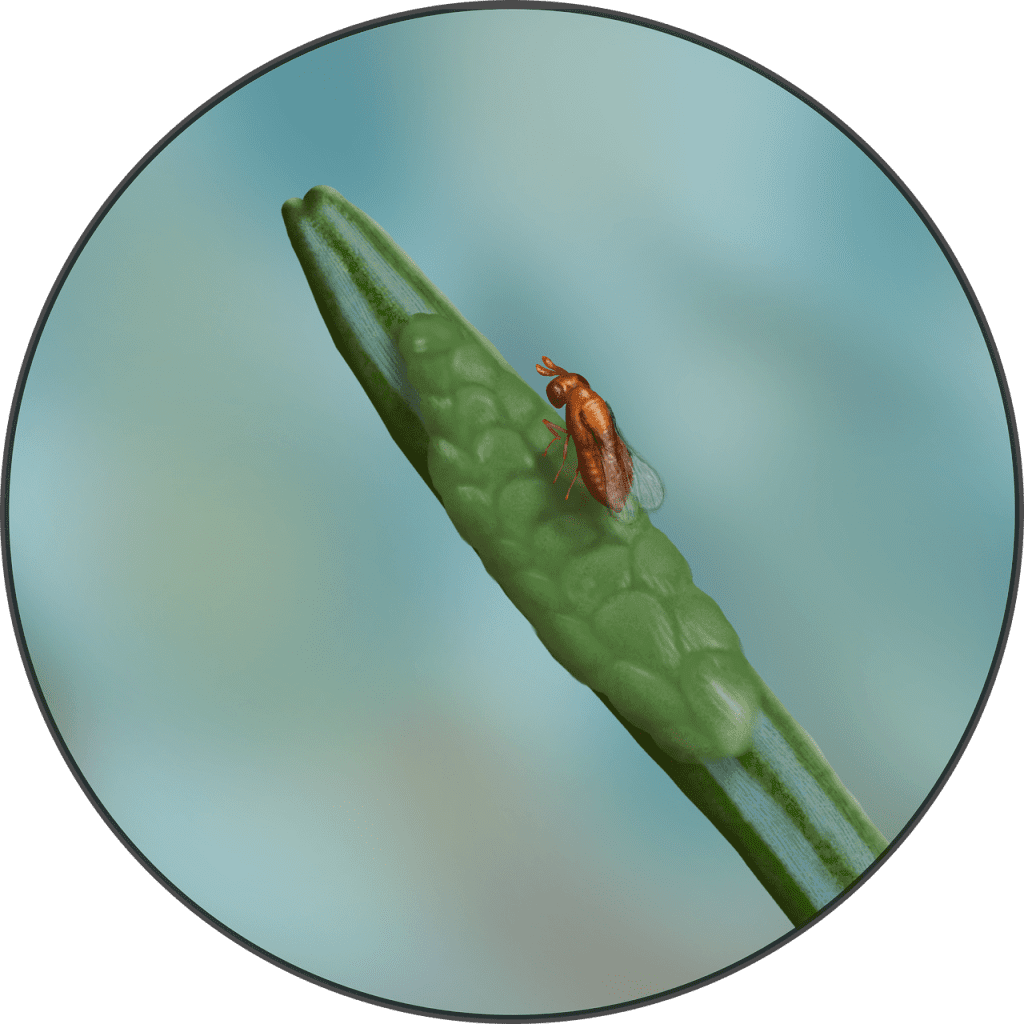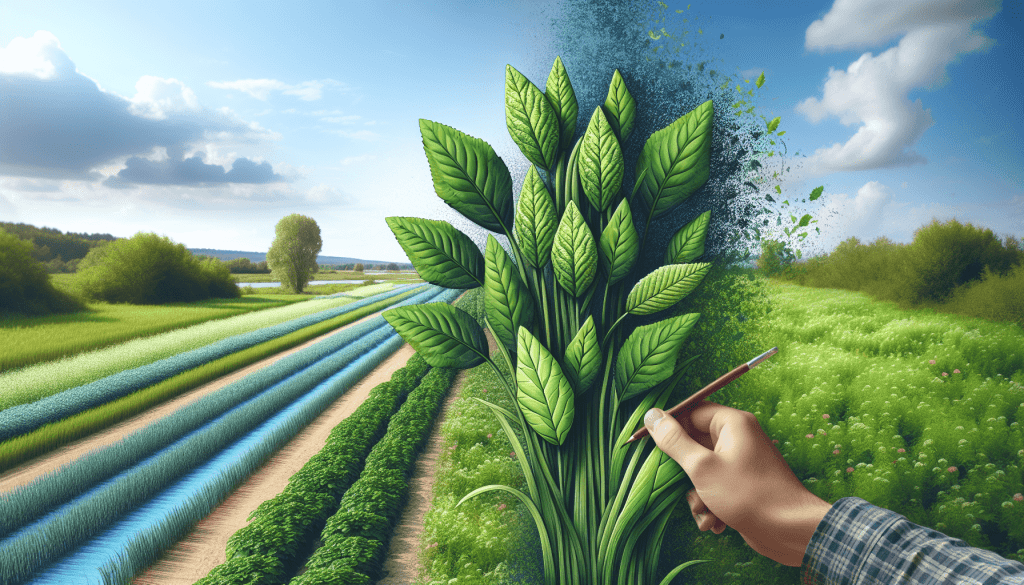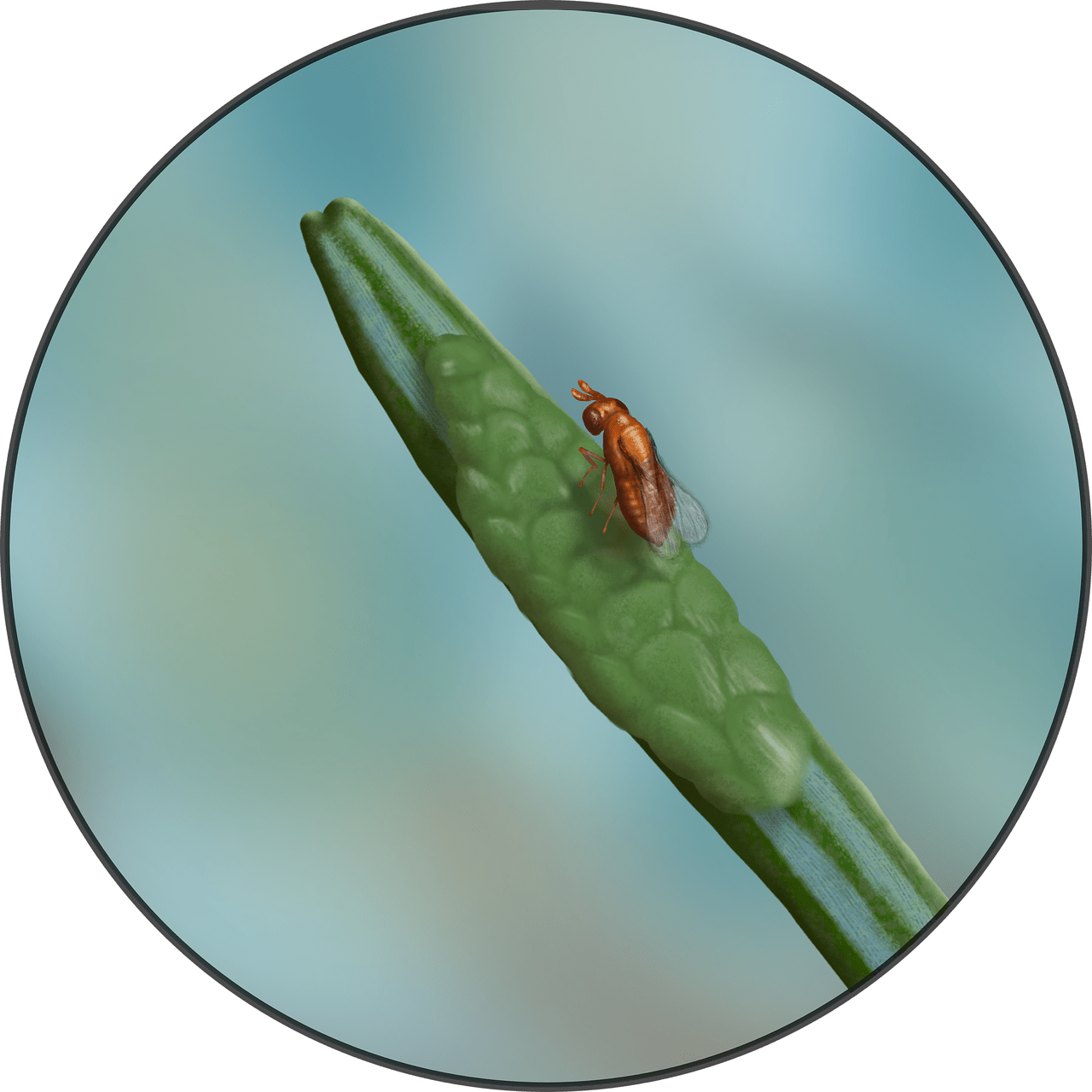Have you ever wondered about the unconventional methods farmers can use to manage pests and weeds on agricultural lands? While synthetic pesticides are commonly used, there’s a growing interest in using natural solutions that are environmentally friendlier and sustainable. One such innovative approach is using alligator weed as a biocontrol agent. You might not be familiar with this aquatic plant or its potential benefits, but it holds promise in revolutionizing agricultural practices.

Understanding Alligator Weed
Alligator weed (Alternanthera philoxeroides) is a perennial plant native to South America. It’s known for its rapid growth and adaptability, thriving in both aquatic and terrestrial environments. While traditionally considered an invasive species, it has paradoxically found a place as a beneficial biocontrol agent.
Characteristics of Alligator Weed
Alligator weed is recognized by its long, sprawling stems, which float on water bodies or spread on land. The plant’s leaves are opposite, simple, and lance-shaped, featuring small white flowers. Its robust nature allows it to compete with native species, often resulting in dense monocultures.
Table: Basic Characteristics of Alligator Weed
| Characteristic | Description |
|---|---|
| Origin | South America |
| Growth Habit | Perennial, aquatic, and terrestrial |
| Leaf Shape | Lance-shaped, opposite arrangement |
| Flower | Small, white, appearing in clusters |
Ecological Impact of Alligator Weed
Alligator weed can outcompete native vegetation, reducing biodiversity and altering ecosystems. Its dense growth can obstruct waterways, affecting water flow and quality. While often seen as a nuisance, this adaptability forms the very basis of its use in sustainable agriculture.
Alligator Weed as a Biocontrol Agent
Using alligator weed as a biocontrol agent involves harnessing its competitive nature to manage other more harmful invasives and pests. This method aligns with integrated pest management (IPM) practices focused on minimizing chemical inputs, thus encouraging a healthier agricultural ecosystem.
Benefits of Biocontrol in Agriculture
Biocontrol, or biological control, utilizes living organisms to suppress pest and weed populations, offering a natural alternative to chemical control methods. It’s a crucial strategy in sustainable agriculture, contributing to:
- Environmental Safety: Reduction in chemical pesticide use ensures a lesser impact on non-target species and the surrounding environment.
- Cost Efficiency: Biocontrol agents can be more cost-effective in the long run as they establish and manage pest populations naturally.
- Sustainability: Supports biodiversity and promotes the health of agricultural ecosystems.
Key Benefits of Using Alligator Weed
Harnessing the properties of alligator weed can lead to several advantages for agricultural lands. Its use as a biocontrol agent contributes positively in numerous ways, making it an innovative tool for modern farming practices.
Natural Pest Suppression
Alligator weed can suppress pests by attracting natural predators, creating a more balanced ecosystem. Its growth can provide habitats for insects that feed on pests affecting crops.
Enhancing Biodiversity
Alligator weed’s presence can encourage a variety of organisms that feed on common agricultural pests. This increase in biodiversity can naturally regulate pest populations, reducing the need for chemical interventions.
Soil Improvement and Erosion Control
In terrestrial environments, alligator weed can aid in soil stabilization, reducing erosion — a crucial aspect for sustaining healthy agricultural lands.
Table: Benefits for Soil Health
| Benefit | Description |
|---|---|
| Soil Stabilization | Prevents soil erosion through root system |
| Organic Matter | Adds organic content to the soil when decomposed |
| Moisture Retention | Helps in retaining soil moisture levels |
The addition of organic matter from decomposed alligator weed can enhance soil fertility, improving conditions for crop growth.
Water Management
In aquatic systems, alligator weed can play a role in managing water quality and flow. It can absorb excess nutrients from the water, potentially curbing issues like algal blooms.
Implementation Strategies
Introducing alligator weed into agricultural practices requires strategic planning to ensure its benefits outweigh potential drawbacks. Careful management is necessary to prevent it from becoming invasive or causing unintended ecological consequences.
Monitoring and Maintenance
Proper monitoring is essential when using alligator weed as a biocontrol agent. You need to assess its growth regularly to ensure it remains beneficial and doesn’t overwhelm the ecosystem or cultivated areas.

Challenges and Considerations
While using alligator weed suggests numerous benefits, there are also challenges to consider. The plant’s invasive nature requires careful oversight to prevent unwanted spread.
Potential Risks
- Invasiveness: Without proper controls, alligator weed can outcompete desired vegetation.
- Waterway Obstruction: In aquatic environments, it can still hamper waterway functionality if left unchecked.
- Habitat Alteration: Can alter habitats which might affect native species.
Future Prospects
Research on alligator weed and its potential as a biocontrol agent is expanding. The ongoing improvement in sustainable farming practices suggests that this plant could play a significant role in future agricultural systems. Emphasizing its advantages, coupled with responsible management, offers promise for more eco-friendly pest control solutions.
Areas for Further Research
- Investigating more on controlled environment growth for optimal benefits.
- Developing guidelines for using alligator weed responsibly across different regions.

Conclusion
While alligator weed may initially seem contradictory as a useful agricultural tool, it provides an exciting path in sustainable agriculture. Its ability to suppress pests naturally, improve soil, and help manage water make it a formidable ally when used judiciously. Through proper management and further exploration, alligator weed can significantly contribute to a more sustainable agricultural future.
Your curiosity to explore eco-friendly agricultural techniques is crucial in today’s context when environmental concerns are at the forefront. Embracing such methods holds the key to balancing productivity with sustainability, ensuring that agricultural practices benefit both the earth and its inhabitants.
